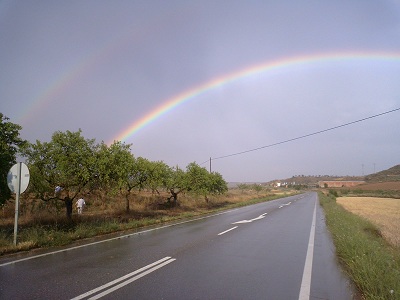Forgiveness is a theme that we should regularly visit because of its importance in our lives. Clients tell me that while sometimes it is easy to forgive others, they will have difficulty forgiving themselves. They’ll focus on questions like, “What could I have done?” or even, “What should I have done instead?” In other words, how do we forgive ourselves when we realize we could have done something different?
Ho`oponopono
Much of the literature and articles that I have seen (and written) on forgiveness deals with forgiving others. This is important. In fact, I teach a specific process in my Huna workshops called ho`oponopono, which literally means to make something doubly pono. Though pono is a word that does not have a specific English translation, the closest word is “right,” but not as in, “You are right and I am wrong.” Pono is the feeling of congruency and calmness that we’ve all experienced at some point. That sense that everything feels “right,” like feeling so at peace with a person or situation that nothing needs to be said. That is pono.
Through the process of ho`oponopono, I have taught many people to become pono (right) with others. Yet the truth is that we need to learn to forgive ourselves first. My wife and I were talking about this concept a couple of days ago and we both admitted that we were once very guilty of self-judgment. We would beat ourselves up for something we should have done or could have done.
My wife feels that she used to be particularly good at harsh self-criticism. Her tendency was to pick apart her past behaviors and actions during the process of gaining new insights about her life. She shared a specific story that illustrates this:
A few years ago, we were out to dinner with our son, my brother and my parents. At the next table there was a child that was watching a DVD on a mini-player. My wife made a comment that when she was brought up, she would not have been allowed to do that. Dinner was for dinner, not for watching TV. “Furthermore,” she explained, “our son is almost always well behaved and never needs anything like this.”
At the time, I didn’t think much of this. Then, about a week or so ago, my wife, my new ten month old daughter, and our mothers went to dinner (oddly enough at the same restaurant). During the dinner, our usually well-behaved daughter decided to test her vocal abilities, and to her delight she found a new range.
Nothing calmed her down! Finally, my mother-in-law walked her around the restaurant until she relaxed a bit, and finally went to sleep. When the screaming began, the first thing my wife remembered was being judgmental of the child watching the DVD years before. She also remembered thinking at the time that it was an inappropriate behavior. And yet, as our daughter’s screaming was occurring, she wished she had a DVD copy of The Wiggles right then!
Hala
At the time, my wife did not understand why the other parents were showing the child the DVD. She had no idea if the DVD was helping the child remain calm, or if it was an unnecessary distraction. But my wife did remember feeling judgmental rather than compassionate. In Huna, this is what we would call hala, which means to miss the path or err by omission.
After this experience, my wife had new insight. She then proceeded to tell herself how wrong it was to have said and thought those things about the other child and his parents. And she caught herself beginning to be self-critical for her judgmental behavior, which occurred in the past at a time where she simply did not understand the dynamics. But my wife has come to realize that it is counter productive to beat yourself up about something that you have already done—even more so about a behavior or action based on an omission (i.e. not knowing something).
Holomua and i mua
Huna has taught the two of us that life is about learning. Since there is an infinite amount of information in the universe, there is always going to be something new to learn. Each time we learn something, we have to remember that there is a reason for the learning. There is something we are meant to do with the learning.
We are meant to use new knowledge to change our future actions and behaviors for the better. The new knowledge is meant to help us holomua or i mua, which means to move forward, proceed or progress. It is not meant to be used to review the past and beat ourselves up for what we should have or could have done. It’s okay that we notice those things from the past, but we have to remember they have already happened and cannot be re-done.
Another way to look at this is that people are doing the best they can with the current resources they have. We are always going to receive resources in the future. Of course if we had them in the past, we would have acted differently. However, we did not have them in the past. We have them now. So these new resources are for now and for the future.
The first step to forgive yourself is to remember that if you come across a memory where you think you should have acted in a different way, just say, “At the time I was doing the best I could with what I knew and what I had.” And, at the same time incorporate the new knowledge to change your future behaviors so you may holomua.
Mahalo,
Matt James




